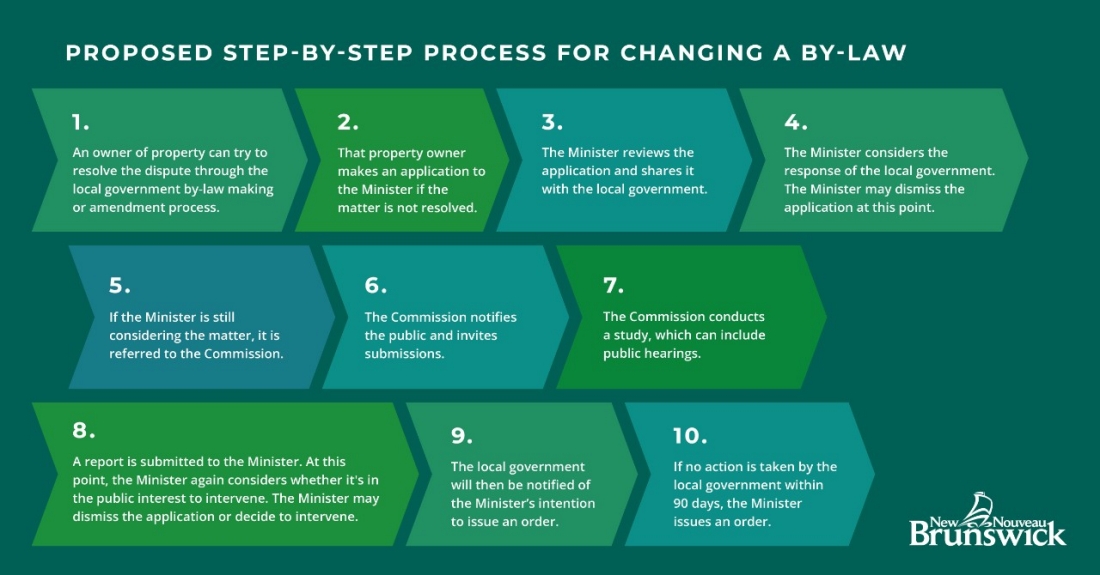Local Governance Commission
The Government of New Brunswick enacted the Local Governance Commission Act that creates an independent body in New Brunswick that will manage both the investigative and adjudicative aspects of local governance. The Act will come into force on a date to be fixed by proclamation.
Read the actDuring the consultation process as part of the Local Governance Reform initiative, it became clear that a single and independent body was necessary. The legislation creates an independent body that will review, assess, rule, and make recommendations on matters identified in the Act affecting the administration and governance of local/regional entities including local governments, regional service commissions and rural districts.
This was originally outlined in the White Paper.
Currently, there isn't one body that is responsible for investigative, oversight and adjudicative matters related to local governance in New Brunswick. Instead, the following bodies share the responsibility:
- Assessment and Planning Appeal Board
- Commissioner of Municipal Affairs (the Deputy Minister of Local Government)
- Regional Service Commission Boards
- Local Government Councils
The Minister of Local Government or the Lieutenant-Governor in Council also make decisions related to important matters, such as audits and supervision.
The Commission, which will include a chairperson and not less than four members, will be responsible for all administrative, investigative, educational, and advisory functions, such as:
- appointing inspectors and investigations
- appointing auditors and audits
- appointing a supervisor/trustee
- handling investigations related to codes of conduct and conflicts of interest
- reviewing cost-sharing decisions made by regional service commissions
- reviewing by-laws
- local government restructuring plans
- changes to region boundaries
The Assessment and Planning Appeal Board will be renamed and become a tribunal. This tribunal, also led by a chair, will operate under the Commission’s organizational umbrella, but will remain independent and perform related adjudicative functions, such as appeals.
The Minister of Local Government currently addresses certain matters related to local governance. As an arms-length body, the Commission will provide independent advice and recommendations.
An owner of property who believes that a local government by-law prevents the reasonable use of their property may apply to the Minister, and the Minister may direct the Commission to conduct a study respecting the repeal or amendment of a by-law.

The process that will be followed for changing a by-law is:
- An owner of property can try to resolve the dispute through the local government by-law making or amendment process.
- That property owner makes an application to the Minister if the matter is not resolved.
- The minister reviews the application and shares it with the local government.
- The minister considers the response of the local government. The minister may dismiss the application at this point.
- If the Minister is still considering the matter, it is referred to the Commission.
- The Commission notifies the public and invites submissions.
- The Commission conducts a study, which can include public hearings.
- A report is submitted to the minister. At this point, the minister again considers whether it’s in the public interest to intervene. The minister may dismiss the application or decide to intervene.
- The local government will then be notified of the minister’s intention to issue an order.
- If no action is taken by the local government within 90 days, the Minister issues an order.